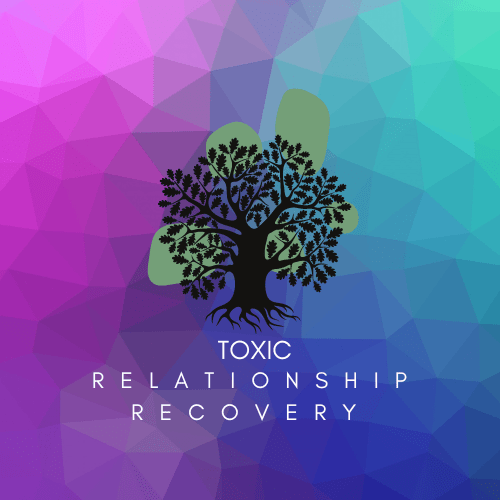Importance of a support system after a toxic relationship
Recovering from a toxic relationship can be challenging and emotionally draining. By establishing a strong support system after a toxic relationship, you can better navigate these difficult times.
A well-rounded support system can provide encouragement, guidance, and a safe space for you to process your emotions as you heal from the harmful effects of a past unhealthy relationship.
The importance of a support system after a toxic relationship cannot be overstated. Research has shown that having a social support system can have a positive impact on your overall mental health. This can be especially important as you work to rebuild your sense of self-worth and establish boundaries in your relationships.
Surrounding yourself with positive, healthy influences can encourage a growth mindset and help you create a brighter future, free from the negativity of your past toxic relationship experiences.
As you embark on the journey of recovery, make a conscious effort to seek out and engage in supportive relationships.
Connecting with caring friends, family members, and even professionals in the mental health field can provide much-needed emotional support and guidance.

This may involve reassessing and distancing yourself from some existing relationships while also cultivating new, healthier connections with others.
Keep in mind that having a network of supportive people by your side who are willing to support you through every step of the process will make the path to healing and growth easier.
Recognizing Toxic Relationships
Signs of a Toxic Relationship
A toxic relationship can make you feel unsupported, misunderstood, demeaned, or attacked. It’s important to identify an unhealthy relationship so you can take the necessary steps to heal and recover.
Multiple signs indicate you could be in a toxic relationship, including:
- Constant criticism
- A lack of trust and respect
- Emotional manipulation
- Poor communication
- Control or possessiveness
- Frequent conflicts or arguments
When you experience these signs, it’s crucial to evaluate your relationship and determine if it’s contributing positively or negatively to your life.
Toxic Behavior
Abusive relationships go beyond the initial definition of toxic relationships, as they directly harm your well-being. Abusive behavior can be emotional, psychological, or physical, and if not addressed, may escalate over time.
Recognizing toxic behavior in a toxic partner or toxic people is the first step towards finding a support system to help you recover. Some examples of toxic behavior include:
- Belittling or sarcastic comments
- Gaslighting or manipulation
- Verbal and emotional abuse
- Incessant control over your personal life
- Isolating you from friends and family
- Physical violence or threatening behavior
Remember, you have the right to feel safe and secure in your relationships. Understanding the signs of a toxic relationship and identifying toxic behavior can empower you to create a strong support system after a toxic relationship that fosters healing and recovery.

First Steps in Recovery
1. Leaving the Toxic Relationship
The first step in recovering from a toxic relationship is to recognize the negative impact it has on your life and make the decision to leave. Exiting such a relationship can be challenging, but it is essential for your emotional well-being and overall mental health.
Create a safety plan if necessary, and develop a support network to help you through this process. Surround yourself with people who care about you and can offer encouragement and advice.
Remember, you deserve a relationship that brings out the best in you, and leaving a toxic environment is the foundation for healing and growth.
2. Finding Professional Help
Addressing mental health issues that may have arisen from the toxic relationship is crucial to your recovery journey. Seeking professional help can provide guidance, coping strategies, and resources for continued support.
Consider engaging with mental health professionals, such as therapists or counselors, who specialize in relationship issues. They can assist in identifying patterns that led to your toxic relationship, help you set healthy boundaries, and support your emotional healing.
From my experience, I discovered that due to my low self-esteem, poor boundaries, and empathetic nature, I was a great target for toxic people and an abusive marriage. It was only when I made changes within myself and created boundaries that I was able to protect myself.
A support system after a toxic relationship will assist you in identifying these new patterns that you should adopt.
In addition, participating in support groups can facilitate connections with others who have experienced similar situations, enriching your support system and fostering a sense of camaraderie.
During your healing process, it’s important to practice self-care and prioritize your well-being. As you move forward, remember that taking the time to heal and grow will lay a strong foundation for healthier relationships in the future.
Creating a Support System after a Toxic Relationship
1. Building Supportive Relationships
To create a strong support system after a toxic relationship, it’s important to surround yourself with healthy, positive relationships. Connect with people who are understanding, respectful, and genuinely care for your well-being.
They should inspire you to make good choices and reinforce your commitment to healing and personal growth. Ensure that you maintain open communication with these people and set healthy boundaries.

2. Support Group Meetings
Attending support group meetings is a powerful way to build a network of people who share similar experiences. These meetings provide a safe, non-judgmental space for you to express your emotions, learn from others, and gain valuable insights into your healing journey.
Joining a recovery support group will not only encourage your healing but also allow you to be a source of support for others in need.
3. Family and Friends
Your family members and close friends play a pivotal role in your support system. They can provide emotional, practical, and social support throughout your healing journey.
Make sure to include them when you share your successes and struggles, as their encouragement can significantly influence your progress.
It’s important to create a supportive environment where your loved ones feel comfortable providing you with honest feedback, which can be crucial for your personal development.
4. Social Networks
Building strong social support networks through various means, such as clubs, organizations, or online communities, can further enrich your support system after a toxic relationship.
Engaging in social networks with people who share your interests can help you feel connected and provide additional resources for healing. By becoming an active member of such groups, you are not only strengthening your support network but also contributing positively to the lives of others.
This mutual exchange of support and encouragement can foster a sense of shared responsibility, enhancing your healing journey.
It’s crucial to understand that everyone’s support system might look different. What works for one person may not work for another.
The key is to identify and engage with the people, groups, and networks that best suit your needs and preferences, to ensure a robust and effective support system after a toxic relationship.

5. Learning New Skills
To set healthy boundaries in your life, you need to develop new skills. Start by identifying your personal needs and values. This will assist you in determining what matters most to you and what other people should respect in your life.
Communicate your boundaries clearly and assertively without being aggressive.
Practice saying “no” when your boundaries are crossed, and let others know when they have overstepped your limits. By doing so, you show yourself and others that you value your well-being and are willing to protect it in your recovery from toxic relationships.
6. Establishing Mutual Respect
Mutual respect is a crucial aspect of setting healthy boundaries. When you and your support system after a toxic relationship acknowledge and respect each other’s limits, you create a strong foundation for a healthier, more supportive environment.
Encourage open communication about your needs and preferences, and listen carefully to the people in your support system when they express their own.
Building this mutual understanding will empower you to maintain respectful boundaries and foster a nurturing support system that is essential for your recovery from toxic relationships.
In summary, setting healthy boundaries is an important aspect of recovering from toxic relationships. By learning new skills and establishing mutual respect within your support system after a toxic relationship, you create an environment that promotes healing, growth, and emotional well-being.
7. Emotional Process
During the healing process, it is essential to acknowledge and work through your emotions. As you recover from a toxic relationship, you may experience a wide range of emotions, such as anger, sadness, or guilt.
It’s important to allow yourself to feel these emotions and not suppress them. This will help you process your feelings, learn from the experience, and ultimately grow stronger.
Remember that it’s okay to seek therapy or counseling if you need a safe space to discuss and process your emotions.
8. Developing Healthy Habits
As you work on your emotional health, it’s also crucial to develop healthy habits that can help support your healing process. This includes creating boundaries with people who may influence you negatively and fostering positive relationships that help you grow and thrive.
Good communication is key to building strong connections, so make sure to practice honesty and openness with those around you.
Other healthy habits involve nurturing both your body and mind. Eat a balanced diet, exercise regularly, and make time for hobbies or activities that bring you joy.
Prioritize your mental health by recognizing and avoiding triggers and incorporating relaxing activities, such as meditation or mindfulness, into your daily routine.

9. Engaging in Self-Care Activities
Self-care activities play an essential role in the healing process and personal growth. Remember that self-care is not a luxury; it’s a necessity for maintaining a healthy state of mind during the healing process after a toxic relationship.
Here are some specific self-care activities that can help you regain emotional balance and nourish your well-being:
- Practice mindfulness: Engage in regular meditation, breathing exercises, or yoga to reduce stress, enhance focus, and cultivate a sense of inner calm.
- Cultivate gratitude: Keep a gratitude journal where you list three things you’re grateful for each day. This can help shift your focus from negative thoughts to positive ones.
- Set aside time for leisure: Make time for activities that you enjoy, such as reading, painting, or spending time in nature. This will help you recharge and provide you with a sense of fulfillment.
- Engage in physical activity: Regular exercise can boost your mood, release stress, and improve your overall well-being.
By integrating these practices into your daily routine, you are actively prioritizing your emotional health and laying the foundation for a balanced and satisfying life without toxic relationships.
10. Physical Health and Wellness
A healthy lifestyle is a crucial part of your support system after a toxic relationship. Start by focusing on your physical health and wellness. Establish a routine that includes a healthy diet, regular exercise, and enough sleep. This will boost your energy levels, increase your resilience, and enhance your overall well-being.
- Healthy diet: Incorporate whole foods, fruits, and vegetables into your daily meals. Make sure you stay hydrated, eat regular meals, and avoid excessive caffeine and sugar intake.
- Exercise: Find a workout routine that you enjoy and stay consistent. Exercise has been proven to help reduce anxiety and depression and increase self-esteem.
- Sleep: Ensure you are getting enough quality sleep every night. Your body needs time to repair and recharge, which plays a significant role in your overall recovery.
11. Positive Interactions
Surround yourself with positive influences, such as friends, family members, and support groups, who encourage your growth and emotional healing. Develop healthy communication skills to maintain these relationships effectively.
- Active listening: Practice attentive and empathetic listening when engaging with others, which contributes to a strong foundation for meaningful relationships.
- Assertive Communication: Stand up for yourself in respectful ways by expressing your feelings, needs, and preferences directly and respectfully.
Participating in recreational activities or pursuing hobbies will expose you to people who share similar interests, which could lead to new, meaningful friendships with a positive impact on your mental and emotional health.

12. Enhanced Emotional Well-Being
Creating a support system after a toxic relationship demands paying attention to your emotional well-being. Nourish your emotional health through self-care activities, mindfulness practices, and recognizing and addressing your feelings.
- Self-care: Schedule time for activities that bring you joy, relaxation, and a sense of accomplishment. This could be engaging in creative hobbies, reading, or spending time in nature.
- Mindfulness: Use mindfulness meditation, yoga, or deep breathing exercises to help you cultivate self-awareness and regulate your emotions during stress.
- Emotional Awareness: Acknowledge and process your feelings without judgment. This will help you identify triggers and develop coping mechanisms for challenging situations.
By focusing on maintaining a healthy lifestyle in these key areas, you’ll create a support system after a toxic relationship and build a foundation for long-lasting emotional resilience.
Navigating New Relationships
1. Finding Common Ground
As you begin to build new relationships, it’s essential to find common ground with your potential romantic partners. Engaging in shared interests and hobbies can foster a bond between you and your partner, promoting positive communication and understanding.
Your support system after a toxic relationship should assist you in actively seeking out social settings and activities where you are likely to meet individuals with similar values, interests, and lifestyles. Establishing this familiarity can facilitate more comfortable interactions and ultimately help build a healthy foundation for your new relationship.
2. Importance of Emotionally Supportive Partners
An emotionally supportive partner is crucial on your journey to recovery from toxic relationships.
Prioritizing emotional support means finding a partner who listens, understands, and helps you work through your emotions, challenges, and personal growth. Surround yourself with positive people who can offer constructive feedback, encouragement, and validation.
When evaluating potential romantic partners, consider the following traits as valuable indicators of emotional support:
- Empathy: Willingness to understand and share your feelings, experiences, and perspectives.
- Trustworthiness: Demonstrating reliability and dependability in their words and actions.
- Open communication: means engaging in honest, transparent conversations on various topics, including the emotional complexities of your past experiences.
- Patience: Displaying an understanding of your recovery process and the time it may take for healing.
By focusing on these qualities, you can help ensure that your new relationships will offer emotional support and contribute positively to your recovery from toxic relationships. Remember, a healthy and emotionally supportive partnership is instrumental in fostering personal growth and maintaining long-term well-being.

Challenges and Ongoing Support
Recovering from toxic relationships is a challenging process, but having the right support system in place is essential. During your healing journey, you will face various challenges, and ongoing support will ensure a smoother journey.
1. Dealing with Social Media
Navigating social media can be one of the main challenges when recovering from toxic relationships. It might expose you to triggers related to the toxic person or introduce new stressors.
To address this, consider limiting your social media use, unfollowing or blocking the toxic person, and connecting with support groups or individuals to help reduce chronic stress.
2. Family Therapy
It’s possible that the situation will have an impact on your family as you recover from toxic relationships. Family therapy is an essential process that helps families understand and empathize with each other’s experiences.
This therapeutic approach can create a support system after a toxic relationship, improve communication, identify unhealthy dynamics, and facilitate healing for everyone involved.

Maintaining a support system after a toxic relationship is crucial for your overall health and well-being. It may be a hard time in your life, but you can navigate this challenging journey with the help of important people around you.
You will find that a strong support system after a toxic relationship can greatly enhance your life during the healing process.
Surrounding yourself with positive, encouraging individuals will bolster your confidence and resilience. These connections help you develop healthy habits and coping mechanisms, which in turn can lead to healthier relationships in the future.
Additionally, having a support system combats social isolation and loneliness. These factors can increase the risk of physical and mental health issues such as high blood pressure, a weakened immune system, anxiety, and depression.
Embrace the support from your network; it’s also a valuable resource for reinforcing your sense of self-worth and emotional stability.
By nurturing these networks, you strengthen your capacity to grow and thrive as an individual on a path toward healthier interactions and a brighter future.

Frequently Asked Questions
1. How can a support system aid in healing from a toxic relationship?
A support system after a toxic relationship can provide emotional and practical assistance during your recovery from a toxic relationship. By surrounding yourself with people who care about you, understand your experiences, and offer a non-judgmental listening ear, you increase your resilience and self-esteem. This helps you overcome trust difficulties and re-establish meaningful connections with others.
2. What benefits can a strong support system provide during recovery?
A strong support system can help you regain a sense of control, cope with emotions, and navigate through challenges. It can offer encouragement, validation, and opportunities for healthy communication. Furthermore, a supportive network can help you create new and healthier patterns in your relationships, leading to long-term personal growth.
3. How do peer networks contribute to the recovery process?
A: Peer networks, such as mutual support groups, bring people together who share similar experiences. These groups create a safe space for open sharing, giving advice, and receiving feedback. When recovering from a toxic relationship, peer networks can be instrumental in creating new, healthy relationships and keeping you accountable on your healing journey.
4. Why is having a social support network crucial after a toxic relationship?
Having a social support network helps create an emotional buffer, reducing the negative effects of stress and isolation associated with toxic relationships. A strong support network offers emotional sustenance, helping you rebuild your identity and self-worth. Moreover, it enables you to learn from other people’s experiences and develop healthy coping strategies.
5. How can support systems improve mental health during recovery?
A support system after a toxic relationship can foster emotional stability, improve your mood, and decrease the symptoms of anxiety and depression that may emerge during recovery. When you have reliable people to turn to in difficult times, you gain a sense of belonging and boost your self-esteem. Connecting with a support system also aids in perspective-taking, facilitating a more balanced outlook on life.







